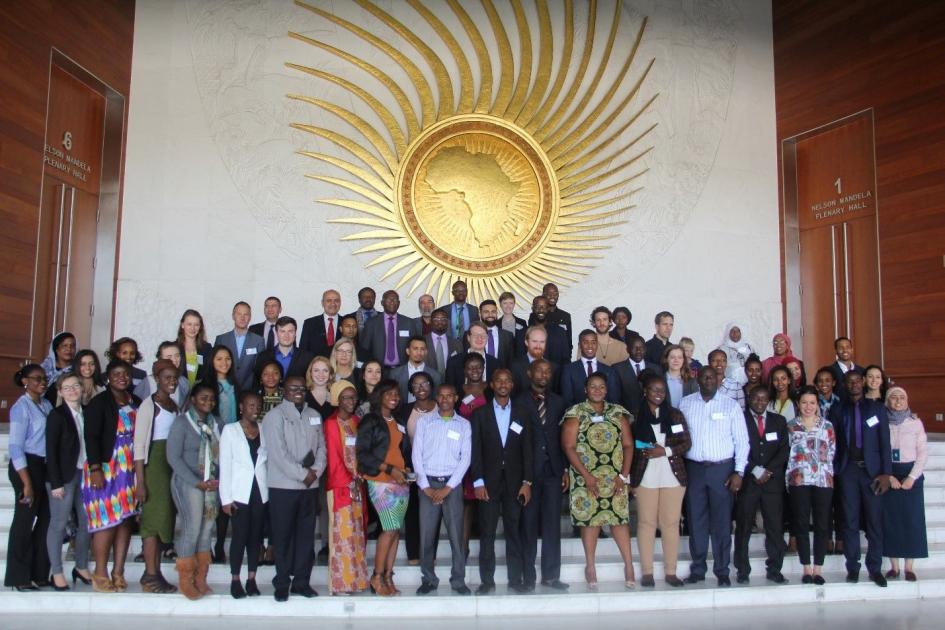Department Resources
The Mapping Study on the Role and Faces of African Diaspora Humanitarianism during COVID-19 sought to determine how different African dia
The African Union’s CIDO-supported webinar series focused on community let initiatives from several African countries aiming at bringing
It is my pleasure to welcome you to our very first newsletter.
The global threat to peace and security that emanates from violent extremism requires the development of innovative approaches to prevent
The African Union Commission (AUC) envisions “an integrated continent that is politically united based on the ideals of Pan Africanism an
Highlights of the cooperation with the GIZ-project “Support to the African Union on Migration and Displacement”
Violent extremism is a global issue.
Agenda 2063 is Africa’s development blueprint to achieve inclusive and sustainable socio-economic development over a 50-year period.













